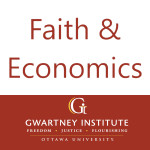
2025 Predictions | #322
The Gwartney Team gives their predictions for 2025. Politics! Sports! Bitcoin! The Catholic Church! Listen in and have every question that anyone could ever ask answered ahead of time in full, with 100% accuracy guaranteed.
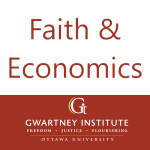

The Gwartney Team gives their predictions for 2025. Politics! Sports! Bitcoin! The Catholic Church! Listen in and have every question that anyone could ever ask answered ahead of time in full, with 100% accuracy guaranteed.
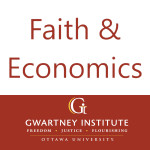
What is Drama? The telling of stories is one of humanity’s most distinctive activities, and yet the basic mechanics of a good story often go unnoticed. Justin outlines the theory of Drama articulated by American playwright and director David Mamet. Listen in and learn how to tell your stories better, or at least learn how to critique your significant other!
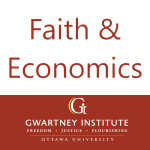
Bitcoin has surged to new all-time highs, passing the 100k ceiling. The Gwartney team breaks down what this means, and they make some predictions about what we can expect going forward.
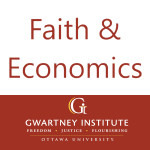
Why do we care so much about sports? Sports play a large role in our lives. Most of us grow up playing sports, and then slowly settle into the role of spectator as age takes its toll on us. Why do we care so much about sports, and which ones are the good ones? What is a ‘sport’ anyway?
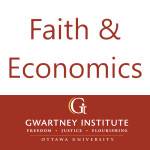
Which system contributes more to human flourishing: capitalism, or democracy? Are capitalism and democracy the same thing, or are they mutually exclusive? what do these terms even mean? Dr. Chris Boudreaux of Florida Atlantic University joins the Gwartney Team to discuss capitalism, democracy, flourishing, freedom, and how we ought to think of their intersection.
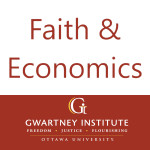
Recorded prior to RFK Jr.'s nomination for Secretary of HHS, the Gwartney Institute's resident RFK Jr. fanboy (Justin) articulates his bullish case for a pivotal RFK Jr. role in the incoming administration.
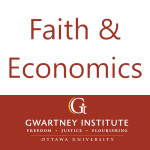
Recorded after the election but prior to any nominations, the Gwartney team discusses the promises and perils of a second Trump term. How will this term compare to the previous Trump administration? How did we get here, and where are we going?
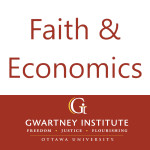
Russ leads a discussion about Tarriffs: What they are, how they work, and why he doesn't like them. Along the way the team discusses the manner in which other state interventions in the market (such as regulations) generate the demand for tariffs, and what this all means going forward.
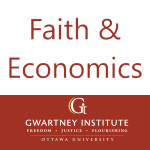
Exactly what kind of speech does the first amendment protect, and why? There is concerted pressure, both domestically and internationally, to expand the State's ability to regulate speech. Those advocating for these policies justify their proposals by citing the need to combat "hate" and "misinformation."
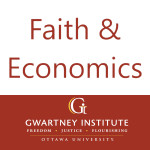
A recent article makes the now familiar claim that AI will render most of the population unemployable. Rather than advocate for a universal basic income, the author argues that we should use the state to shape the labor market to guarantee employment. This is a 'jobs program', but for everyone! Is this really the least-bad option?
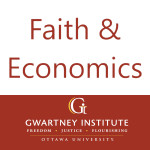
Peter leads the Gwartney team in fruitful discussion of the Psalms. A rich and rewarding book, The Psalms comprises songs and prayers and prayerful songs, without a single author or viewpoint. How then are we to interpret them?
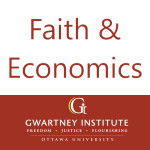
Russ recently advised an Arizona municipality that was considering extending a 1-cent sales tax to fund transportation infrastructure such as road maintenance. Russ advised in favor of extending the tax for another 20 years. Peter and Justin aren't so sure. Who is right? Tune in for the sales pitch!
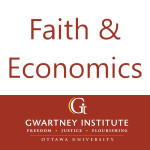
Tall Poppy Syndrome is the tendency for groups to punish members for their success, or even for aiming at very high achievement. Once made explicit, it's possible to find tall poppy syndrome all over. Where did it come from? Why does this tendency show up in some groups more than others? What are the effects--both positive and negative--of this tall poppy syndrome?
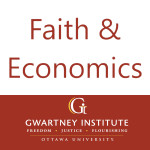
Russ details the trials and tribulations of trying to move his bitcoin off of Coinbase and take personal custody of his crypto. If that sentence didn't make sense to you, tune in as the Gwartney team explains what a hardware wallet is, why many bitcoin enthusiasts recommend keeping your crypto in 'cold storage' and the ways in which the crypto ecosystem has changed over the last decade as industry has anticipated and responded to regulation.
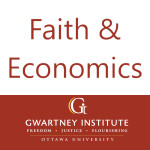
Kamala Harris has proposed taxing 'unrealized capital gains'. What does this even mean? How would such a tax restructure incentives and market forces? Is this a good idea, or something you should be worried about? Find out!
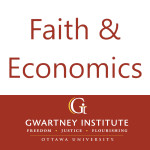
The Gwartney Team takes a break from serious political, philosophical, and economic issues to discuss their favorite movies and why they love them. Except, it turns out these choices reveal serious political, philosophical, and economic issues...
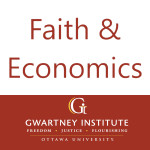
Continuing our discussion of one of the fathers of Existentialist philosophy, Justin walks us through one of Nietzsche's famous thought experiments. Nietzsche thought he had found a recipe for living in a way that affirms life. Did he?
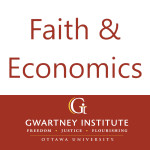
Friedrich Nietzsche, a notorious 19th century philosopher and one of the fathers of the Existentialist movement, famously proclaimed that 'God is dead'. This claim delights atheists and dismays theists, but Justin argues that the claim is usually misinterpreted. What did Nietzsche mean, and why does it matter?
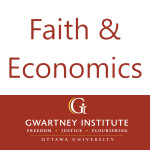
In this week's Faith & Economics podcast, the professors talk about the "Is/Ought" problem, a key issue in philosophy. They explain the difference between describing what is (facts) and what ought to be (morals). The discussion also covers how this difference affects our views on ethics, morality, and decision-making in public policy.
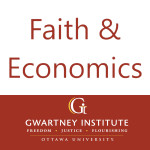
In this episode, our two economists address the problems with rent control. The Harris campaign announced that rent controls may be on the table for policy changes. Learn about the hidden costs and people who get hurt when rent controls are used. This one topic that economists almost universally dismiss as bad policy!
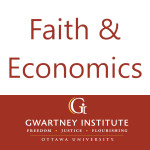
Not raising the federal minimum wage of $7.25 since 2009 has been one of the best things for the American labor market. Learn the reasons for this as the Gwartney Economists explain how unemployment rises when the minimum wage is above market wage. Individual states like Arizona, have minimum wage above the market and are proposing yet another increase this fall from $14.35 to $18. What predictions can be made on unemployment, labor benefits, labor conditions, small business, inflation and other things we care about?
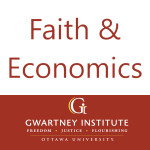
The Gwartney team looks at recent political events (an assassination attempt, a party ticket switcheroo), and the conversation quickly turns to the vitriolic nature of our political discourse. What causes our political debates to be so heated? Are we headed for turmoil? How can we turn down the temperature?
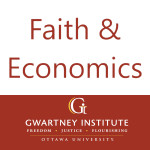
Historian Niall Ferguson recently published an article about the place of the USA in the global order titled 'We're All Soviets Now'. What did he mean? Is he right? Listen to the Gwartney Team discuss Ferguson's intriguing claims, and let us know if you agree!
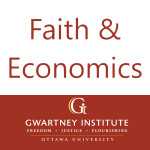
Most people use the terms 'uncertainty' and 'risk' interchangeably, but philosophers and economists both agree that these two terms denote very different situations. Even more importantly, mistaking one situation for the other can be extremely costly.If you're uncertain, know that it would be risky to skip this episode. Or it might be uncertain? I forget...
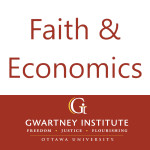
A 6-3 decision by the Supreme Court overruled Chevron. Pundits were rending their garments and gnashing their teeth, but what exactly was the Chevron Deference Doctrine? Why did it matter, and what role did Chevron Deference play in the operations of the Federal Bureaucracy? Is this good or bad news? Join the Gwartney Team for a discussion of Chevron, and of what might follow in the wake of Chevron's demise. Timeline: Definition // 1:30 A closer look at the branches of government // 5:00 Effects // 8:00 A brave new post Chevron world (or not)? // 16:30
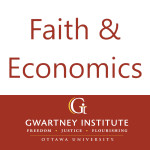
Join the Gwartney Team to discuss the first Presidential debate. What was most surprising? What does the election look like going forward?
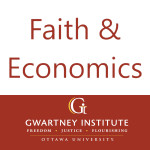
People disagree about whether particular acts are moral or immoral. But there is a deeper disagreement lurking, which is a disagreement about the fundamental nature of morality itself, and this is a disagreement that Justin claims is currently playing out in contemporary philosophy. So, what is morality, and why should we care?
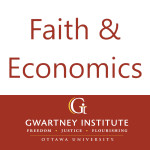
The Gwartney Institute usually has a rather dim view of the state, and therefore advocates getting the government out of social policy. But the Family is the primary unit of social organization, and plenty of government programs seem to erode the family structure. So, what would a pro-family social policy look like? Is this something we should be advocating for? Why or why not?
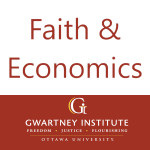
What is the relationship between luck and morality? We often think that luck is morally neutral, in that you shouldn't be blamed or praised merely because you were lucky or unlucky. The other side of this coin is that we think that moral praise and blame should be reserved for actions that are within our control. But what if there is more overlap between morality and luck than we had previously thought?
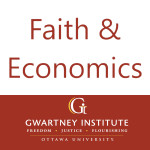
Bitcoin turns 15 in 2024, and many other digital currencies have sprung up in the wake of bitcoin's volatile success. Central Banks are now positioning themselves to enter the space with CBDCs (central bank digital currencies), which they claim will make monetary policy more effective while maintaining the benefits of digital currencies without the speculative risks. Are they right, or should we be worried?
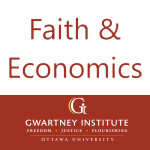
Here at the Gwartney Institute, we often describe ourselves as advocates for freedom. But even as our freedoms come under attack from all angles, the concept of freedom itself might be unclear, and the meaning is at least disputed. So, what is freedom anyway?
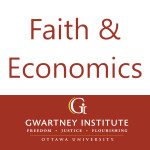
In this episode, Dr. Clarke explains what fallacies are, providing clear examples and insights. Following his explanation, Dr. McCullough and Dr. Jacobsen engage in a lively debate, presenting their differing views on various fallacies. Tune in for an enlightening discussion that breaks down common logical errors and explores their implications in everyday arguments and decision-making.
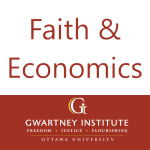
Justin is angry and animated because he thinks we live in a world where measurement has replaced judgment, and that this robs us of individuality, autonomy, and authenticity. He also thinks the results in terrible outcomes for physical and mental health, education, and if you can believe it, other bad stuff too. He's really on one, so let him cook.
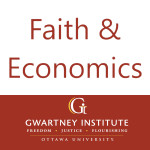
What are labor unions, and what role do they play in the modern economy? The Gwartney team explains the arguments for and against Labor Unions, and outlines the ways in which these arguments have changed as the economy has modernized and globalized.
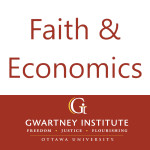
At the Gwartney Institute, we're very fancy. Still, we wanted to know: What exactly constitutes high art? Is there any substantial difference between the avant-garde and what the rest of us enjoy? Peter walks the Gwartney team through an interesting article purporting to answer this very question. Along the way they touch on haute cuisine, cinema, centerfolds, and punk rock.
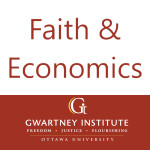
Who's Afraid of Deflation?Everyone hates inflation - where our money is worth less and less over time. However, many economists prefer a limited amount of inflation to a phenomenon that they find even scarier: deflation. What is deflation, where does it come from, and why are policymakers so afraid of it? Peter, Russ and Justin explain the orthodox view that deflation is dangerous, and then they explain why this fear may not in fact be entirely warranted.
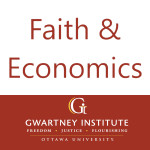
Could we work less and be better off? The traditional 40-hour work week has been under the microscope in certain policy circles, accompanied by suggestions that if we moved to a 4-day work week (or a similarly reduced schedule) we would be happier and just as wealthy. The Gwartney team takes precious time out of their respective work weeks to look at these suggestions and the assumptions and arguments which motivate them.
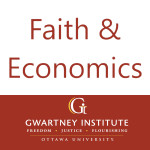
To what degree is our food supply under federal control? How and why does this happen? How much of a problem is this? Justin has a bee in his bonnet about current federal regulations regarding livestock, and the rest of the Gwartney crew humors his paranoia with civil discussion.
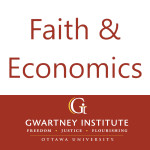
Recent studies show that relations between men and women have deteriorated, particularly among those of dating, mating and creating age. What causes this? What does it mean? How do we fix it? The Gwartney Team weighs in. Join us!
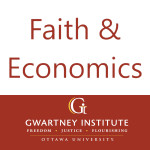
The Gwartney Team mixes it up, talking about some of the best recreational reading they've come across lately. No textbooks, no political tirades, just the kind of reading that they do for fun, and that you might enjoy. Is Peter is still reading Ernst Jünger? Why is Justin so weird? What kind of space-laser-weapons is Russ currently salivating over? For the answers to these questions – and for recommendations with which to stock your own wish list! – make sure not to skip this episode.
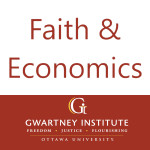
What are pet peeves, and why do we get so peeved about them? The Gwartney Team wonders what constitutes a pet peeve, and whether or not they serve a socially useful function. Along the way, they share their own pet peeves, and let me tell you: these guys are nuts.
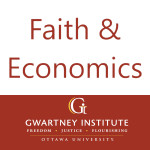
The possible merger of grocery giants Kroger and Albertsons is in the news. When businesses centralize, there is a danger that they could form a monopoly, which can then exploit consumers. This, at least, is the justification that the governmental bureaucracy gives in order to regulate business mergers and centralization. Problematically, the government itself is, by definition, a monopoly. What is going on? Join The Gwartney Team as they tease out the costs and benefits of centralization in various forms. Reference Timeline: Competition vs. the profit incentive // 3:30 Why centralization of the food supply is dangerous // 7:00 Can economies of scale be maxed out? // 15:00 "A diversity of products better satisfies the diversity of consumers" // 18:00 Losing the price signals of capital goods // 23:45 What goes before a company's fall? // 25:00
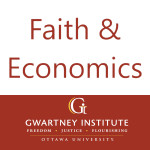
Our society seems increasingly concerned with and organized around issues related to mental health. Is this development progress, or a symptom of something deeper? How are mental problems related to physical ailments? What does this mean for us? Join the Gwartney team to discuss the growing influence of mental health policy.
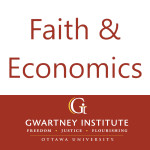
When we think about what constitutes human flourishing, we usually think about family and vocation. But this leaves out an important source of meaning in our lives: our hobbies. What is a hobby anyway, and why so many of us consider them so important? Are there any features that make some activities better suited to be hobbies than others? Is our society getting better or worse at having hobbies? Join the Gwartney team for a discussion about one of life's under-analyzed pleasures: the noble hobby.
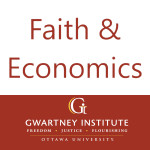
Ottawa University Alumnus and serial insurance industry entrepreneur Dan Meylan joins the Gwartney team for a discussion. Dan makes the case that biblical principles can inform and improve business operations and leadership, and that this combination can pay compound dividends.
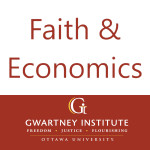
In this episode we ask: What is the social responsibility of a business? This was the question on the table during an exciting debate event hosted by the Gwartney Institute earlier this month, and a question that we often hear discussed in our culture. Join us as the Gwartney Team breaks down the different views on this pivotal topic and finds some surprising results! Timeline: The Shareholder Theory vs. Stakeholder Theory // 5:00 Milton Friedman "The social responsibility of a business is to increase profits" // 6:00 Moral Concerns of Stakeholders and Stockholders // 17:00 Playing By the Rules? // 18:30 Institutional Incentives // 27:30
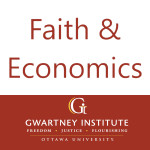
Join us in this "When to end a friendship" episode, where we tackle a tricky question: When is it okay to say goodbye to a friend? As students, we juggle a lot, including friendships that might only sometimes feel right. We'll chat about signs that tell us it's time to move on, like feeling constantly down or disrespected. Plus, we'll share tips on having those tough talks and putting our well-being first. Please tune in and learn when it's time to wave goodbye to toxic friendships and make room for better ones!
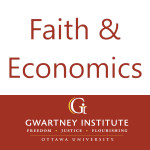
In this episode, we dive into the heart of Small Town America to explore the challenges and opportunities these communities face. Join us as we discuss whether anything should be done to address the unique issues they encounter. From local economies to community spirit, we unravel the stories shaping small towns' future. Please tune in for an insightful conversation that encourages us to think about the role we all play in supporting the vitality of these cherished communities.
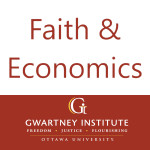
This episode, we examine the current state of democracy in the United States and recent attempts by appointed and elected officials to remove a candidate from primary elections. Join us as the Gwartney Team discusses the ramifications of this development, and puts forth ideal solutions that could tame the increasingly vehement and irresponsible form of politics we have been experiencing in the 21st century. Reference Timeline: 2.40 - When is it appropriate to say the people cannot vote for someone? 3.20 - Precedent in the making? 9.30 - The 14th Amendment 11.00 - Emergence of "Lawfare" 14.00 - Banana Republics 19.00 - Carl Popper and his Paradox of Toleration 30.00 - Democracy vs. Republic 40.00 - "Get Religion"
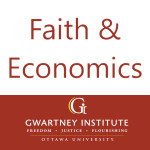
Join us in a heartfelt and inspiring special edition of our podcast as we pay tribute to the remarkable life and legacy of Dr. Jim Gwartney. Delve into the captivating biography of this influential economist who touched the lives of many with his wisdom and guidance. Discover the profound impact he had on those around him and be uplifted by the stories that showcase the enduring inspiration drawn from Dr. Gwartney's life. Tune in for a touching exploration of the lessons and values that made him a beacon of inspiration for all.
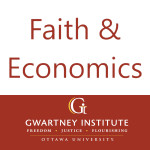
In this new episode "Argentina's Big Change: New President, New Ideas," Russ, Peter, and Justin, chat about Argentina's recent election. The country used to be more about socialism, but now they've chosen a leader who likes the idea of a free-market economy. Join the fun talk as the professors break down what this could mean for Argentina – like, how it might affect their money, people, and relationships with other countries. Get ready for an easy-to-follow podcast that makes understanding politics a breeze!
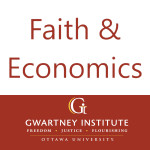
Hello everyone, This week's new podcast, "2024 Predictions: Bitcoin, Economy, Elections," will reveal the upcoming year's events, so get ready! We are dissecting Bitcoin, the financial industry's state, and the elections' current state. Enjoy casual conversations, knowledgeable analysis, and a few surprises. You're welcome to join us as we decipher the future! With that said, put on your headphones and plunge into "2024 Predictions: Bitcoin, Economy, Elections"—foreseeing the future is always advantageous!
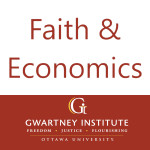
Let's dive into renewable energy with the awesome Dr. Levi Russell. Wondering if it's as renewable as it sounds? Dr. Russell is here to explain it all without the confusing jargon. Imagine solar panels and wind turbines like superheroes saving the planet. Dr. Russell helps us understand how these cool technologies work in simple terms that even your grandma could get. Are you curious about why everyone talks about renewable energy? This episode spills the beans!